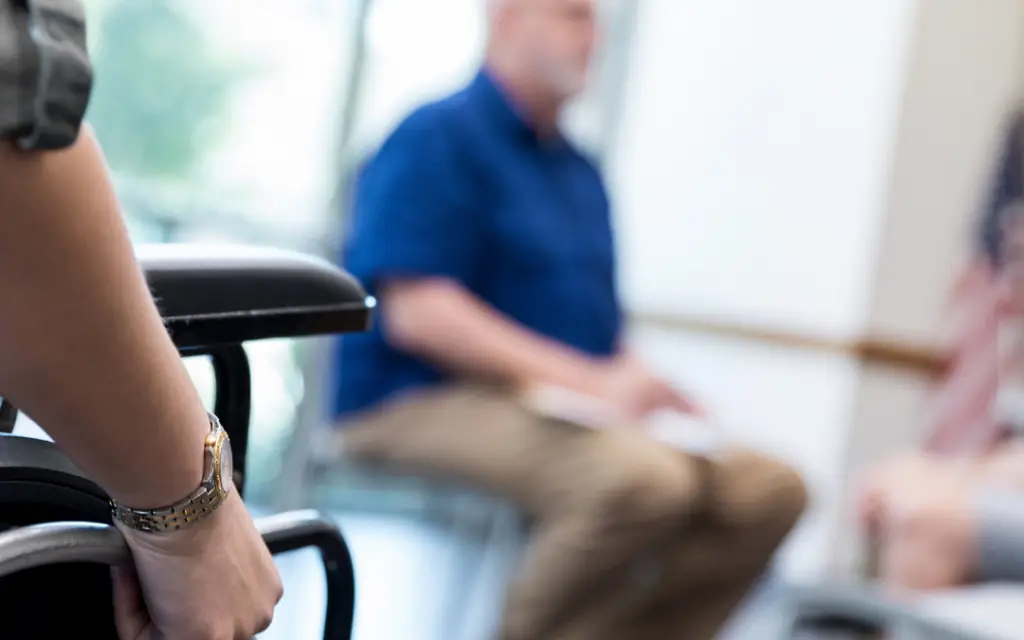In the aftermath of military service, veterans often face unique challenges that can impact their mental health and well-being. Transitioning from the structured environment of the military to civilian life can be daunting, leading to feelings of isolation, anxiety, and even post-traumatic stress disorder (PTSD). However, amidst these challenges, there exists a powerful resource that offers hope and healing: veteran therapy. Veteran therapy encompasses a range of specialized treatments tailored to address the unique needs of those who have served in the armed forces. From cognitive-behavioral therapy to group counseling sessions, these interventions provide veterans with the tools and support they need to navigate the complexities of post-service life. In this blog post, we’ll delve into the importance of veteran therapy, exploring its role in promoting mental health, enhancing quality of life, and fostering resilience among those who have served their country. Join us as we uncover the profound impact of therapy in empowering veterans to overcome obstacles and embrace a brighter future.
Tailored Support: Understanding the Unique Needs of Veterans in Therapy
Each veteran carries a story shaped by their military service, a narrative of sacrifice, courage, and resilience. Yet, within these stories lie unique experiences and challenges that require specialized support. Veteran therapy is not a one-size-fits-all approach; it demands a nuanced understanding of the complexities of military life and its impact on mental and emotional well-being. In this post, we delve into the importance of tailored support for veterans in therapy and how it can make a profound difference in their healing journey.
Combat Trauma and PTSD
Combat exposure can leave deep psychological wounds that continue to affect veterans long after they return home. PTSD, in particular, is prevalent among those who have experienced the horrors of war. Veteran therapists are trained to address the unique manifestations of PTSD in veterans, offering evidence-based treatments such as cognitive-behavioral therapy (CBT) and exposure therapy tailored to their needs.
Military Culture and Identity
Military service often shapes a person’s identity in profound ways, influencing their values, beliefs, and sense of self. Transitioning from military to civilian life can be disorienting, as veterans navigate the loss of their military identity and the challenges of reintegration. Veteran therapists understand the intricacies of military culture and help veterans explore their identity beyond the uniform, finding new sources of meaning and purpose.
Reintegration Challenges
Returning home from deployment is a monumental transition that comes with its own set of challenges. Veterans may struggle to reconnect with family, find employment, or adjust to civilian routines. Veteran therapy provides a supportive environment for veterans to address these reintegration challenges, offering practical strategies, resources, and emotional support to ease the transition.
Substance Abuse and Addiction
Substance abuse and addiction are common coping mechanisms for veterans struggling with the invisible wounds of war. Whether it’s alcohol, prescription medications, or illicit drugs, substance abuse can exacerbate mental health issues and hinder the healing process. Veteran therapists are trained to screen for substance abuse and provide specialized interventions, such as integrated treatment for co-occurring disorders, to address the underlying issues driving addiction.
Physical Disabilities and Traumatic Brain Injury
Many veterans return from service with physical disabilities or traumatic brain injuries (TBI) resulting from combat or training-related incidents. These injuries can have significant implications for mental health, affecting mood, cognition, and overall functioning. Veteran therapists collaborate with medical providers to offer comprehensive care for veterans with physical disabilities and TBI, integrating strategies for coping with pain, improving mobility, and enhancing quality of life.
Building Bridges: Strengthening Relationships Through Veteran Therapy
The impact of military service extends far beyond the individual veteran; it reverberates through their relationships with loved ones. Yet, the strains of deployment, combat trauma, and readjustment to civilian life can often create rifts within these relationships. Building bridges and fostering connection is essential for veterans and their families to navigate the challenges they face. In this post, we explore how veteran therapy serves as a catalyst for strengthening relationships and rebuilding trust among families.
Healing the Wounds of War Together
Combat trauma doesn’t just affect the veteran; it can also leave a lasting impact on their loved ones. Spouses, children, and parents may struggle to understand and cope with the emotional scars left by war. Through family therapy sessions, veterans and their families can address these wounds together, fostering empathy, support, and healing within the family unit.
Communication as a Path to Connection
Effective communication lies at the heart of healthy relationships. Yet, the stressors of military life can often hinder open and honest communication between veterans and their loved ones. In therapy, couples and families learn communication skills that promote understanding, active listening, and empathy, laying the foundation for stronger, more resilient relationships.
Rebuilding Trust and Intimacy
Trust is a cornerstone of any relationship, but it can be fragile in the aftermath of military service. PTSD, substance abuse, and infidelity are just some of the challenges that can erode trust between partners. Veteran therapy provides a safe space to address these issues, rebuild trust, and cultivate intimacy through vulnerability and mutual support.
Navigating the Transition Together
The transition from military to civilian life is a significant milestone that affects the entire family. Veteran therapy helps families navigate this transition by providing support, resources, and strategies for coping with the challenges that arise. From career changes to identity shifts, therapy empowers families to adapt and thrive in their new reality.
Caring for the Caregivers
Behind every veteran is a network of caregivers who provide invaluable support and assistance. Yet, the demands of caregiving can take a toll on their own well-being. Therapy offers caregivers a space to prioritize their own needs, set boundaries, and seek support from fellow caregivers who understand their unique challenges.
Honoring Service: Why Veteran Therapy Matters
Veterans have sacrificed much in service to their country, yet often return home carrying unseen burdens. In this blog, we explore why veteran therapy is crucial in recognizing their sacrifices and supporting their journey to healing.
- Recognition of Sacrifice: Veteran therapy acknowledges the sacrifices made by service members, both visible and invisible. It honors their commitment to duty and the challenges they face upon returning home.
- Addressing Mental Health Needs: Many veterans grapple with mental health issues such as PTSD, depression, and anxiety as a result of their service experiences. Therapy provides a safe space to address these needs and work towards healing.
- Reintegration Challenges: Transitioning from military to civilian life can be daunting, with veterans facing unique reintegration challenges. Therapy offers support in navigating these transitions and finding a new sense of purpose post-service.
- Destigmatizing Mental Health: By promoting open dialogue and seeking therapy, we can help destigmatize mental health issues within the veteran community. It encourages veterans to seek the support they need without fear of judgment.
Conclusion
Understanding the importance of veteran therapy is crucial for supporting those who have served our country. Veterans often face unique challenges upon returning home, including PTSD, depression, and anxiety, which can significantly impact their quality of life. By seeking therapy tailored to their needs, veterans can find healing, coping mechanisms, and a supportive environment to navigate their experiences and transition back into civilian life with renewed strength and resilience.
If you or a loved one is a veteran struggling with mental health issues, don’t hesitate to reach out to Renewed Wellness Counseling, PLLC in North Carolina. Our dedicated team is committed to providing personalized therapy services to veterans, helping them reclaim their well-being and live fulfilling lives. Contact us at 252-505-8150 to schedule an appointment and take the first step toward healing.








